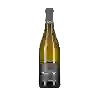
Domaine de la DamasePicpoul
In the mouth this white wine is a .
This wine generally goes well with vegetarian, poultry or lean fish.
Taste structure of the Picpoul from the Domaine de la Damase
Light | Bold | |
Dry | Sweet | |
Soft | Acidic |
In the mouth the Picpoul of Domaine de la Damase in the region of Méditerranée is a .
Food and wine pairings with Picpoul
Pairings that work perfectly with Picpoul
Original food and wine pairings with Picpoul
The Picpoul of Domaine de la Damase matches generally quite well with dishes of pasta, vegetarian or poultry such as recipes of pasta with puttanesca sauce, tuna, pepper and tomato quiche or cheeseburger.
Details and technical informations about Domaine de la Damase's Picpoul.
Discover the grape variety: Cabernet-Sauvignon
Cabernet-Sauvignon noir is a grape variety that originated in France (Bordeaux). It produces a variety of grape specially used for wine making. It is rare to find this grape to eat on our tables. This variety of grape is characterized by small bunches, and small grapes. Cabernet-Sauvignon noir can be found in many vineyards: South-West, Loire Valley, Languedoc & Roussillon, Cognac, Bordeaux, Armagnac, Rhone Valley, Provence & Corsica, Savoie & Bugey, Beaujolais.
Last vintages of this wine
The best vintages of Picpoul from Domaine de la Damase are 2017
Informations about the Domaine de la Damase
The Domaine de la Damase is one of of the world's greatest estates. It offers 8 wines for sale in the of Vaucluse to come and discover on site or to buy online.
The wine region of Vaucluse
The wine region of Vaucluse is located in the region of Méditerranée of Vin de Pays of France. Wineries and vineyards like the Domaine Chêne Bleu or the Domaine Chêne Bleu produce mainly wines red, white and pink. The most planted grape varieties in the region of Vaucluse are Viognier, Merlot and Cabernet-Sauvignon, they are then used in wines in blends or as a single variety. On the nose of Vaucluse often reveals types of flavors of earthy, blueberry or dried herbs and sometimes also flavors of savory, anise or cinnamon.
The wine region of Méditerranée
Méditérranée is a PGI title that covers wines produced in a large area of the South-eastern coast of France, roughly corresponding to the wine region of Provence but also including Part of the Rhône Valley. The PGI shares its territory with multiple AOC appellations as varied as Châteauneuf-du-Pape, Bandol and Côtes de Provence. The PGI Méditérranée catchment area extends over 10 departments (including the two on the island of Corsica), as well as smaller parts of the Isère, Loire and Rhône departments. Viticulture is essential to the culture and economy of this part of France.
The word of the wine: Varietal wine
Name given to the local wine (IGP), produced from a single grape variety that gives the wine its characteristics of structure and aroma. The Languedoc is the leading producer of this type of wine, from most of the major French grape varieties.














